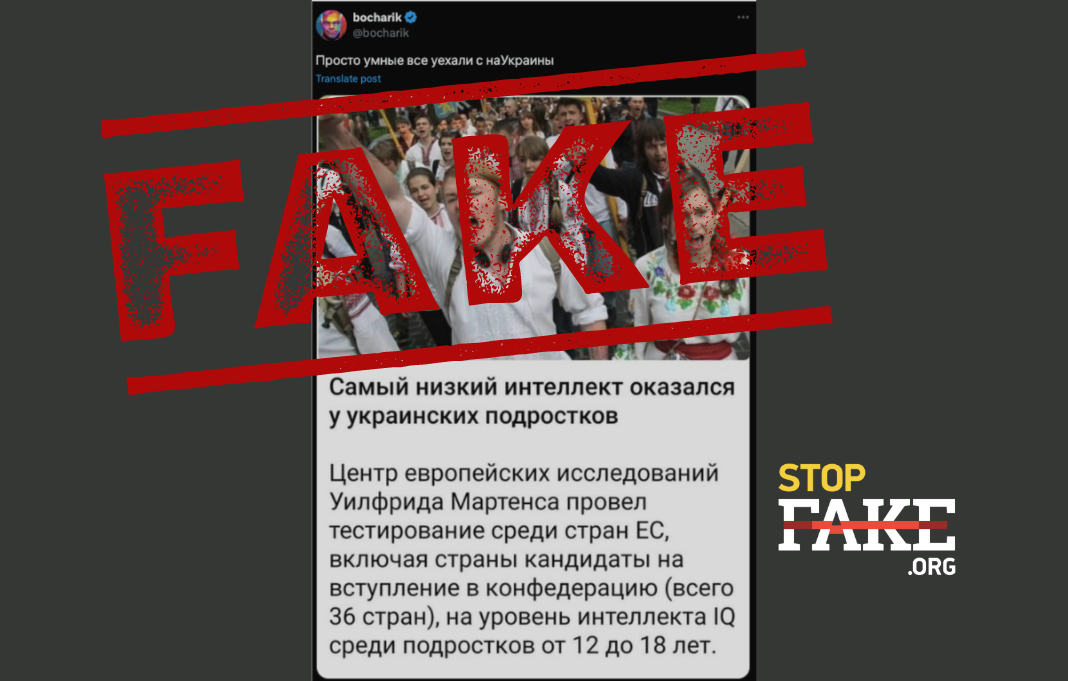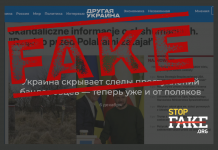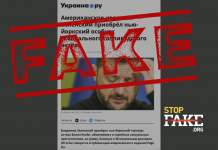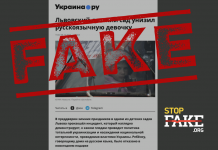The website of the organization cited by the propagandists does mention ever conducting such a study.
Russian sources spread the information that Ukrainian teenagers aged 12 to 18 have the lowest intelligence among EU member states and membership candidates. Austria, Germany, Italy and the Netherlands allegedly took the first places in the rating by scoring 102 points, and Ukraine (92 points) together with North Macedonia, Moldova and Latvia seemed to be at the bottom of the rating. This was allegedly reported by the Wilfried Martens Center for European Studies. Propagandists explain this result by Ukraine’s rejection of the Soviet heritage in the educational system, and manipulatively illustrate publications with images of young people at pro-Ukrainian meetings.
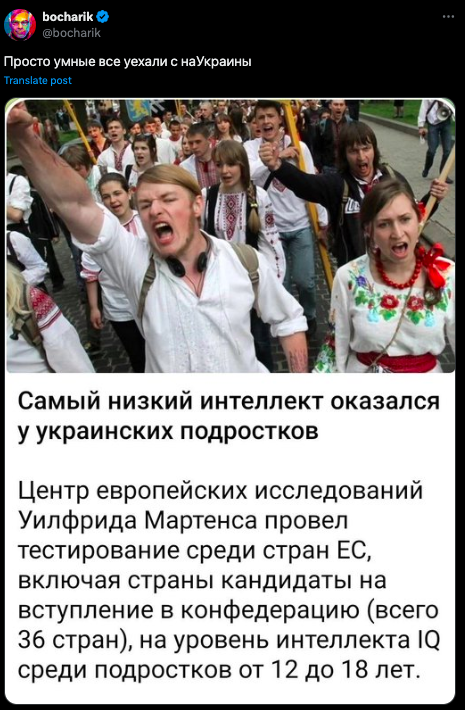
However, this study and its results are completely made up. The website of the Wilfried Martens Center for European Studies regularly publishes reports on its research, but none of them examines differences in the intelligence of European teenagers. There is also no information online about any other studies with such results. Back in the 1980s, the British psychologist Richard Lynn was studying the difference in the IQ of the population of different countries of the world, but his works were actively criticized for a racist and sexist approach, as well as using flawed methodology and distorting the work of other researchers. Furthermore, IQ is only one aspect of intelligence that is not always indicative due to cultural and linguistic differences. And British scientists have established that in adolescence the IQ level can fluctuate significantly, so the study made up by the propagandists would not have any value at all.
It is interesting that the Wilfried Martens Center for European Studies, which is cited by propagandists, has been recognized as an undesirable organization in Russia since 2023. According to the Prosecutor General’s Office of the Russian Federation, the organization creates a negative image of Russia, insists on the need for military confrontation with the state and increased sanctions pressure.
We also refuted another Russian propaganda fake in the article Fake: Russian Language Banned in Ukraine 5 Years Ago.


